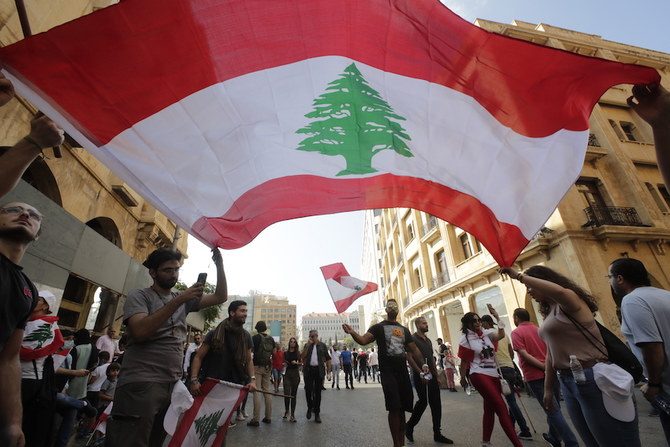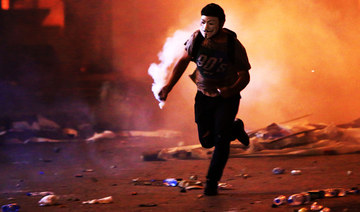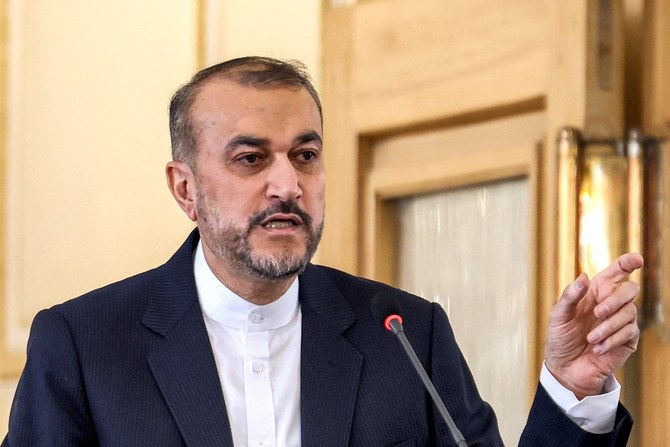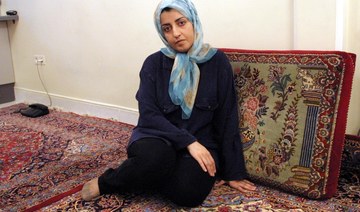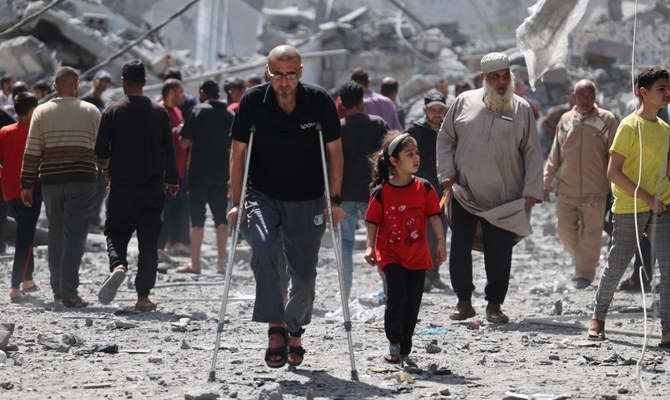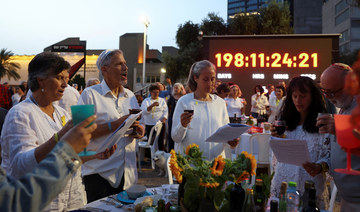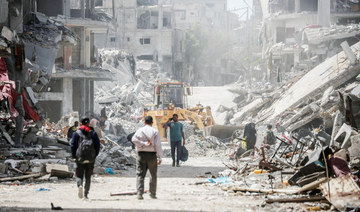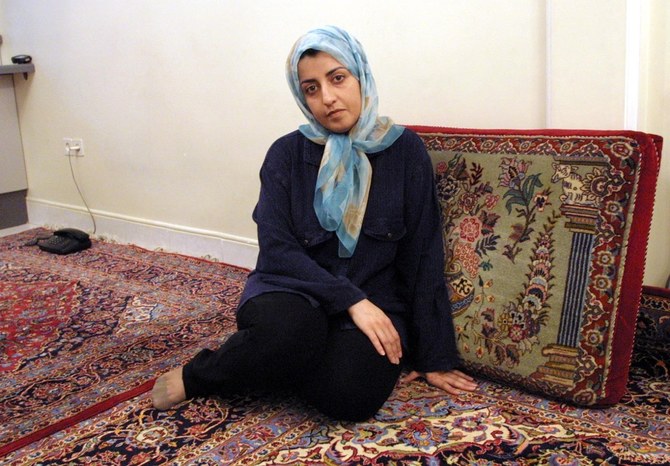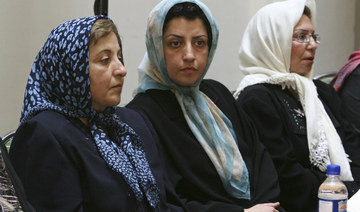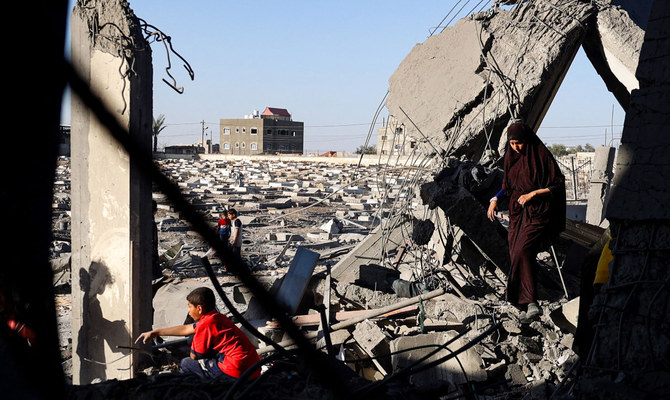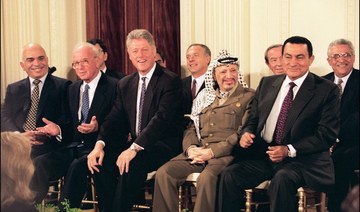BEIRUT: Tens of thousands of Lebanese people took to the streets Saturday for a third day of protests against tax increases and alleged official corruption despite several arrests by security forces.
They streamed into the streets around the country's parliament in Beirut, as well as elsewhere across the country, AFP journalists said, despite calls for calm from politicians and dozens of arrests on Friday.
The number of protesters grew steadily throughout the day, with major demonstrations in second city Tripoli, in the north, and other locations.
Many waved billowing Lebanese flags and insisted the protests should remain peaceful and non-sectarian.
The demonstrators are demanding a sweeping overhaul of Lebanon's political system, citing grievances ranging from austerity measures to poor infrastructure.
They have crippled main roads and threatened to topple the country's fragile coalition government.
Most Lebanese politicians have uncharacteristically admitted the demonstrations are spontaneous, rather than blaming outside influence.
In Tripoli demonstrator Hoda Sayyur was unimpressed by the contrition some leaders displayed on television and echoed a widely-held hope that the entire political class be replaced.
"They took all our fundamental rights... We are dying at hospital gates," the woman in her fifties said.
"I will stay in the street... Since I was born, we've been spectators to their quarrels and corruption," she said.
The army on Saturday called on protesters to "express themselves peacefully without harming public and private property".
POLL: Will the 72-hour period announced by Prime Minister Saad Hariri be enough to solve the crisis in Lebanon?https://t.co/XTDAMirEio
— Arab News (@arabnews) October 19, 2019
Saturday evening thousands were again packed into the Riyadh al-Solh Square in central Beirut, despite security forces using tear gas and water cannons to disperse similar crowds a day before.
The Internal Security Forces said 70 arrests were made Friday on accusations of theft and arson.
But all of those held at the main police barracks were released Saturday, the National News Agency (NNA) said.
It said that the father of one man detained tried to set himself on fire in front of a police station.
The demonstrations first erupted on Thursday, sparked by a proposed 20 cent tax on calls via messaging apps such as WhatsApp.
Such calls are the main method of communication for many Lebanese and, despite the government's swift abandonment of the tax, the demonstrations quickly swelled into the largest in years.
Prime Minister Saad Hariri has given his deeply divided coalition until Monday evening to give their backing to a reform package aimed at shoring up the government's finances and securing the disbursement of desperately needed economic assistance from donors.
He held a series of meetings Saturday regarding the situation, NNA said.
Hariri's political rival, Hezbollah leader Hassan Nasrallah, gave his first response on Saturday, telling protesters their "message was heard loudly" and calling for political action.
In a thinly veiled criticism of Hariri, Nasrallah condemned those who had renounced their "responsibilities and were blaming others."
But he warned against demanding resignation of the government, saying it could take a long time to form a new one and solve the crisis.
The current unity government has the backing of most Lebanese political parties, including Hezbollah.
Karim el-Mufti, a Lebanese political scientist, said Hezbollah, which is fighting in neighbouring Syria alongside the government of Bashar al-Assad, wanted to avoid potential chaos at home.
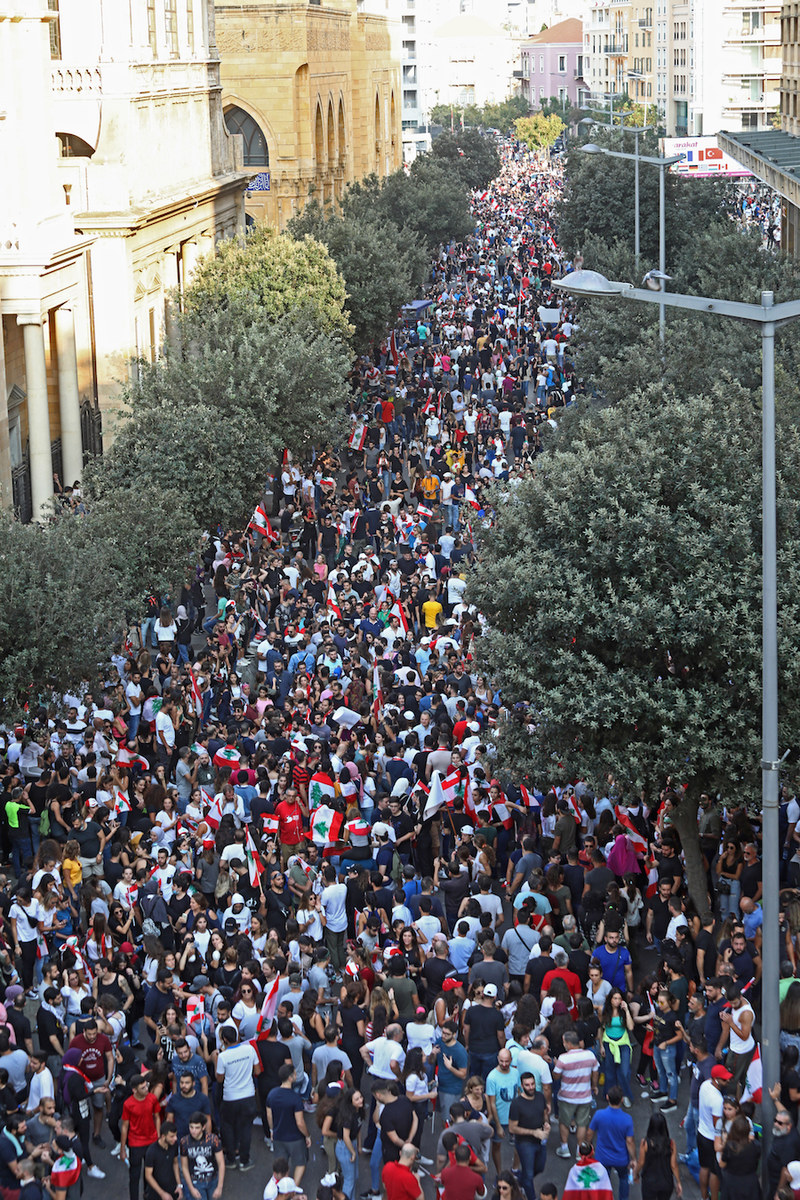
In the southern port city of Tyre, supporters of Shia politician and speaker of parliament Nabih Berri attacked protesters Saturday, a witness said, a day after demonstrators had accused him of corruption.
His Amal political party condemned the attack and called for an investigation.
More than a quarter of the Lebanese population lives below the poverty line, according to the World Bank.
Many of the country's senior politicians came to prominence during the country's 15-year civil war, which ended in 1990.
A protester in the southern city of Nabatiyeh, a Hezbollah stronghold, said protesters are demanding their "rights". protesting.
"They are trying to portray us as a mob, but we are demanding our rights," he told a local television channel. "We are used to repression."
Lebanon has one of the highest public debt burdens in the world and the government is trying to reach agreement on a package of belt-tightening measures to cap the deficit in next year's budget.
The promised austerity moves are essential if Lebanon is to unlock $11 billion in economic assistance pledged by international donors last year.
Growth has plummeted in recent years, with political deadlock compounded by the impact of eight years of war in neighbouring Syria.
Lebanon's public debt stands at around $86 billion -- more than 150 percent of gross domestic product -- according to the finance ministry.
Lebanon agrees final budget with no taxes
Lebanon's finance minister said on Saturday following a meeting with Prime Minister Saad al-Hariri that they had agreed on a final budget that did not include any additional taxes or fees in a bid to appease nationwide protests.
Lebanon President Michel Aoun said in a tweet that there would be a "reassuring solution" to the economic crisis.
(With Reuters)









